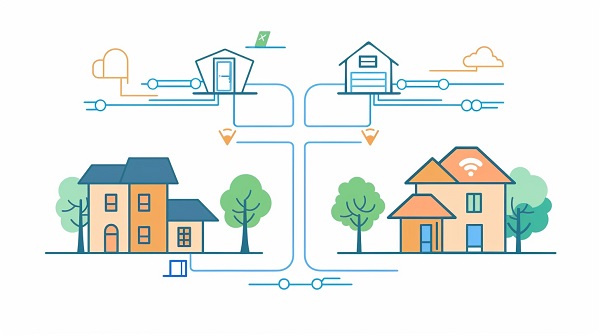3 Methods to Set Up a Reverse Proxy on a Home Network
Step-by-step guide to install and configure NGINX, Apache, or Caddy as a reverse proxy for home servers, complete with SSL, security, and troubleshooting tips.
Post Time:2025-04-29
Discover the differences between ISP proxies and residential proxies. Learn which type is best for web scraping, bypassing geo-restrictions, e-commerce monitoring, and more.
Proxies are widely used for daily online activities, whether for privacy, security, web scraping, or bypassing geo-restrictions. Among the most popular proxy types are ISP proxies and residential proxies, each offering unique advantages depending on your specific use case.
Next, we’ll explore the differences between ISP proxies and residential proxies, breaking down their pros and cons, and helping you decide which type is the best for your needs.
Both types serve the core function of routing your online activities through a different IP address, effectively masking your real location and identity. However, the way they achieve this differs significantly.

ISP Proxies
Residential Proxies
| Feature | ISP Proxies | Residential Proxies |
| Speed | High (Data Center Hosted) | Moderate (Home User Networks) |
| Anonymity | Good (ISP Issued) | Excellent (Real Residential Devices) |
| Detection Resistance | Moderate (May Be Detected) | High (Harder to Identify) |
| Geo-Targeting | Limited | Very Granular (City Level) |
| Use Case |
E-commerce Streaming SEO Monitoring |
Web Scraping Account Management Bypassing Geo-restrictions |
| Cost | Higher | Varies, generally lower |
ISP proxies, also known as static residential proxies, are IP addresses issued by Internet Service Providers (ISPs) but hosted in data centers. They are unique in offering the legitimacy of a residential IP (since they come from ISPs), but they are housed on high-performance servers in data centers.
Unlike traditional data center proxies, which are often flagged as suspicious by websites due to their association with cloud infrastructure, ISP proxies are more trusted because they appear to come from regular residential or business connections. This hybrid nature provides a balance between speed, reliability, and legitimacy.
Residential proxies are IP addresses assigned to real devices in homes or offices. These IP addresses are issued by ISPs and are tied to actual users, making them the most authentic type of proxy available. Unlike ISP proxies, residential proxies are not housed in data centers. Instead, traffic is routed through real consumer devices, which makes them appear as legitimate residential connections to websites.
Since residential proxies are tied to real users, they are much harder to detect and block, making them highly effective for tasks that require stealth and high-level anonymity.
Now that we’ve covered the definitions, let’s directly compare ISP proxies and residential proxies across a range of critical features:
√ ISP Proxies: ISP proxies benefit from being hosted in data centers, offering high speeds and low latency. This makes them ideal for tasks that require fast, large-scale data retrieval.
Residential Proxies: Residential proxies, on the other hand, tend to be slower as they rely on consumer-grade internet connections. While they can still handle many requests, they are not as fast as ISP proxies.
ISP Proxies: Offer moderate anonymity, but they are still possible to detect by websites with advanced anti-proxy measures.
√ Residential Proxies: Residential proxies provide superior anonymity since they use real residential IPs. They are much harder to detect, making them ideal for tasks requiring high stealth.
ISP Proxies: ISP proxies offer limited geo-targeting, as their IP addresses are tied to specific data center locations, which may not cover all desired regions.
√ Residential Proxies: Residential proxies excel at geo-targeting, offering wide location options down to the city level. Ideal for regional-specific tasks.
√ ISP Proxies: ISP proxies are highly reliable due to their data center infrastructure, which ensures stable and continuous connections.
Residential Proxies: Residential proxies can be less reliable because they depend on the availability of real user devices, which may experience downtime or slow speeds.
ISP Proxies: Typically more expensive for hybrid nature and high speeds.
√ Residential Proxies: The cost of residential proxies varies widely, but they tend to be more affordable, especially for tasks requiring quantities of IPs.
Now that you’ve seen the in-depth comparison, the choice between ISP and residential proxies depends on your use case.
Choose ISP Proxies If:
Choose Residential Proxies If:
ISP proxies and residential proxies offer distinct advantages. ISP proxies are the go-to option for speed and reliability, while residential proxies shine in tasks requiring high anonymity and stealth. By understanding their differences, you can make an informed decision and select the proxy type that best meets your needs.
Ready to enhance your online activities with the right proxy? Contact us today to learn more about premium ISP and residential proxy services.
< Previous
Next >